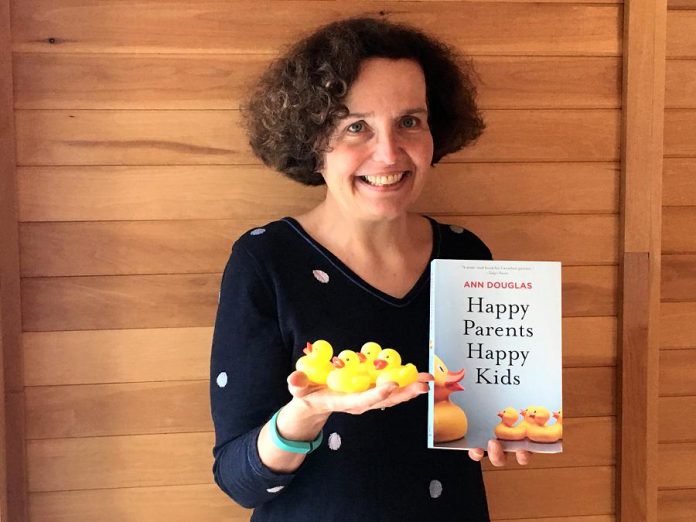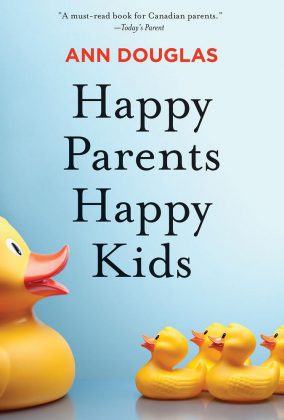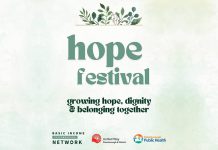
A funny thing happened when I set out to write my latest parenting book.
I almost ended up not having a book to write.
Here’s how things played out time and time again during the earliest stages of my book research: I’d approach some parents, tell them about the book, and ask them if they’d be willing to be interviewed.
The parents would initially express great enthusiasm for the project, telling me that there was a tremendous need for just such a book, and that, in fact, they couldn’t wait to rush out and pick up a copy of the book for themselves.
And then, boom, they’d turn down my request for an interview.
It wasn’t that they didn’t want to help, they were quick to explain: it was just that they didn’t feel qualified to help. Yes, they were parents, but it’s not like they were especially good parents. In fact, they were pretty much doing it all wrong …
The first couple of times this happened, I simply shrugged my shoulders and moved on. But it just kept happening. And that was my first clue that something about parenting had changed. Not only was the most educated generation of parents ever experiencing a massive, collective crisis of confidence: they were also being flooded by feelings of anxiety, guilt, and being overwhelmed.
That realization got me thinking. Does parenting actually have to be this hard? Why is it so hard? And what will it take to make things easier and better for parents and kids? The book that I ended up writing — Happy Parents Happy Kids — is my attempt to answer those questions. Here’s what I figured out along the way.
Something is different about this moment. Everything about parenting feels impossibly high stakes. And both parents and kids are feeling that pressure.

Parenting doesn’t happen in a bubble. As parents, we can’t help but be affected by what’s happening in the wider world — and by social and economic policies that too often only serve to make life even harder for our families.
Because the way things stand right now, parenting isn’t just hard; it’s almost impossibly hard — and for reasons that have little to do with parenting.
The good news is that many of us are starting to connect the dots between those policy decisions and what we are actually experiencing within our own families.
And we’re starting to recognize that many of the things that are making parenting almost impossibly hard are too big for individual families to solve on their own.
Systemic problems require systemic solutions, in other words.
As I noted in the book, “In our culture, we have a tendency to treat parenting as a private problem we should be able to solve on our own — and to beat ourselves up when we can’t. But here’s the thing: the village has a vested interest in the health and wellbeing of its children because they represent the next generation of citizens …
“That’s how things are supposed to work. We’re supposed to feel supported by our fellow villagers. There are, after all, so many thing the village can do to make things easier and better for parents and kids — and it’s actually in the village’s best interest to do so.”
Parents are feeling incredibly judged. The consistent message that they’re receiving from our culture is both crystal clear and devastating: “You’re doing it wrong.”
If there’s one parenting narrative that’s been amplified and celebrated by the media in recent years, it’s the idea of the helicopter parent: that ever-present overprotective parent who is constantly hovering in junior’s vicinity. But here’s the thing: it’s a myth.
Or, to be fair, the idea that helicopter parenting is the defining parenting style of our time is a myth. Sure, there was that one parent who did that one over-the-top thing that one time — but that doesn’t mean that all parents are perpetually in hover mode.
Unfortunately, the helicopter parenting narrative has a tendency to get inside your head. Whenever I speak to a group of parents, there’s inevitably at least one parent in the crowd who will raise a hand and make a comment that starts with, “You’re probably going to think I’m a helicopter parent …” And, almost invariably, the story they feel compelled to preface with such a shame-filled disclaimer is, in fact, a story about really great parenting.
Here’s something else that concerns me. I’ve noticed that fear of being labelled a helicopter parent is causing parents to pull away from their kids or to parent in unnecessarily harsh ways. If we want parents to be able to nurture and support their kids in a way that actually allows children to thrive, “the village” needs to ease up on the shame and the judgment that so many parents are feeling.
Instead of trying to pin the blame on parents, it’s time for “the village” to step up.
A shared commitment to nurturing all of the children in our communities would make life so much easier for parents — and not just because there would be more hands available to help with the physical heavy lifting of raising kids. The emotional load would become correspondingly lighter as well.
After all, if it’s the entire village’s responsibility to care for a particular child, it’s the entire village’s responsibility to figure out how to help child or a parent who is struggling.
What it all comes down to is a willingness to allow ourselves to feel blessed, not burdened, by our interconnectedness: to treat the fact that we’re wired to turn to one another for support as a source of strength, not weakness, and to build a society on that basis.
And that would be a complete game-changer for parents, giving them so much less to feel anxious about.


























